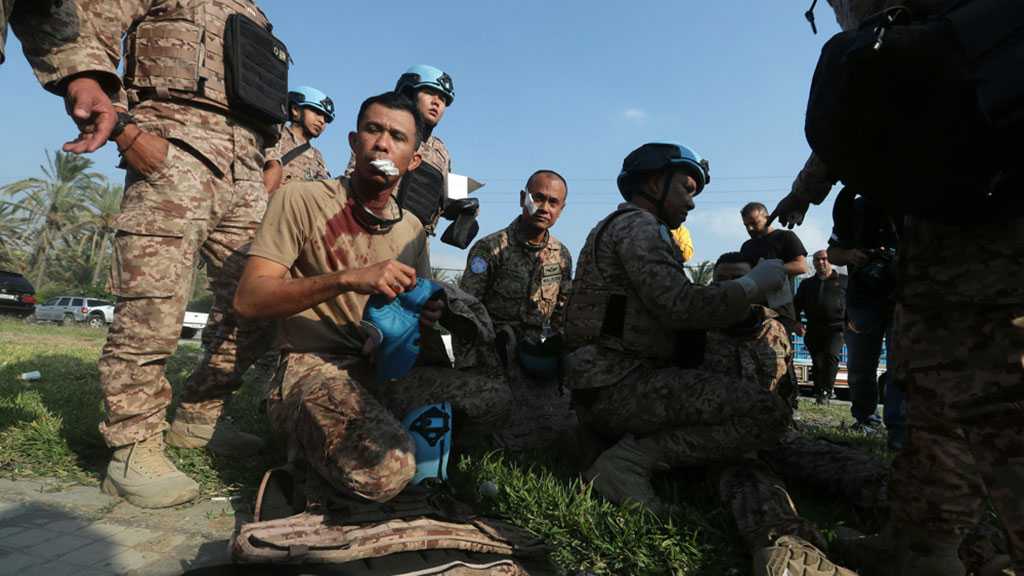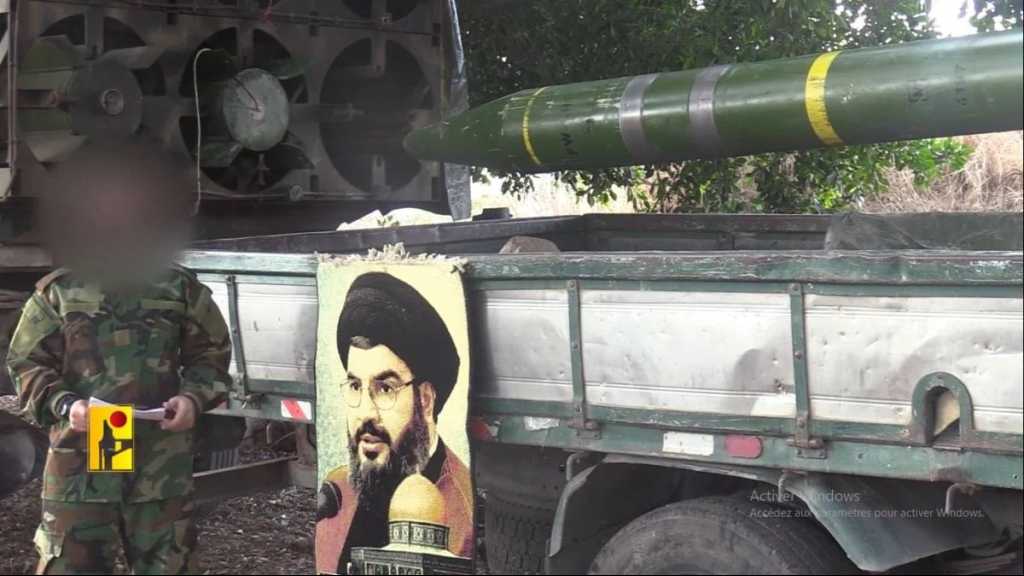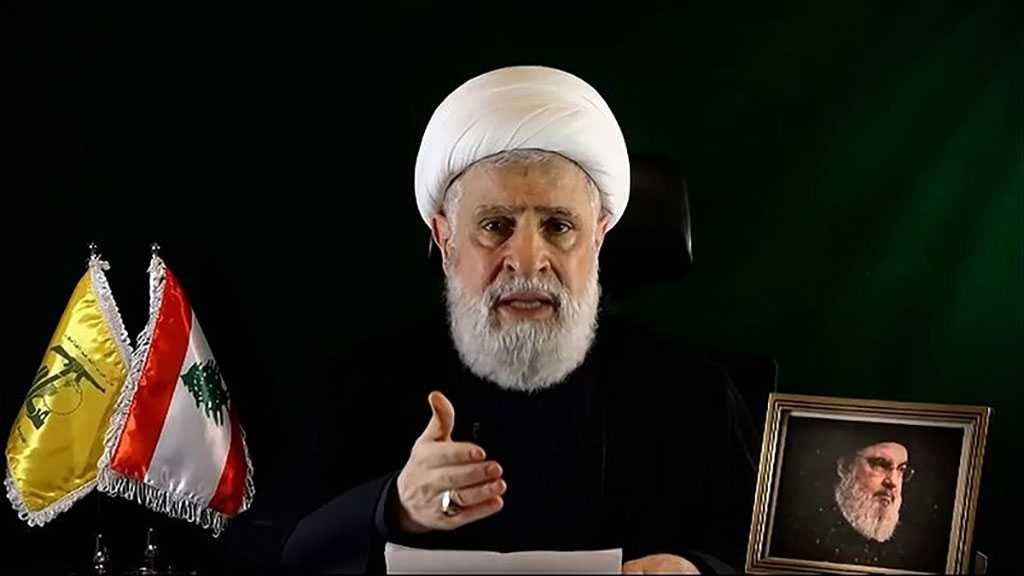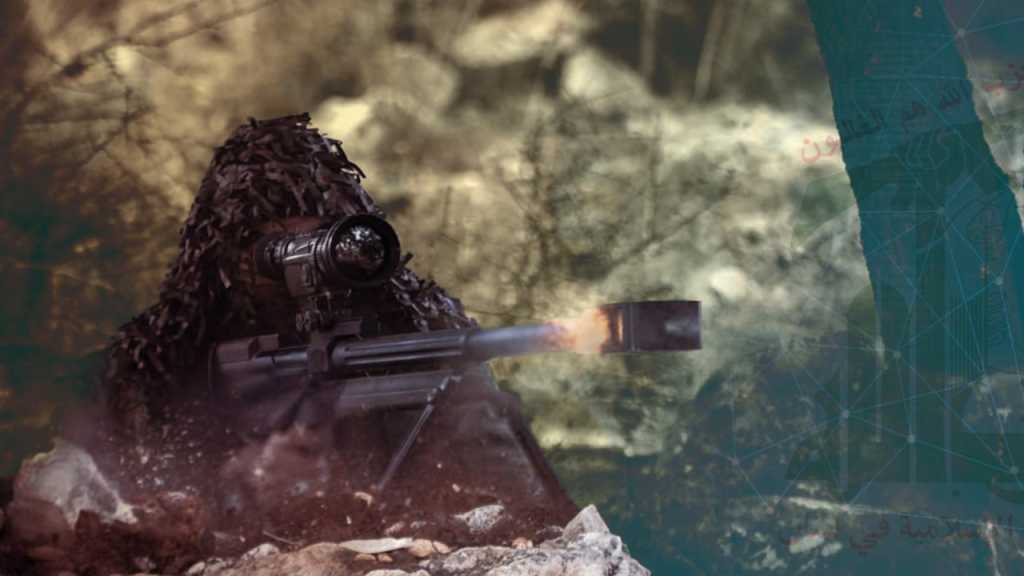
H.E. Sayyed Nasrallah and Gen. Aoun: Our understanding set a climate of trust and inner peace

BEIRUT: Sayyed Hassan Nasrallah, secretary general of Hizbullah, and MP Michel Aoun, head of the Free Patriotic Movement appeared Wednesday night in a rare joint interview on Orange TV (OTV) to commemorate the two-year anniversary of the Memorandum of Understanding signed between their groups at the Mar Mekhayel Church in the southern suburb of Beirut.
The leaders of Lebanon's largest Muslim-Shiite and Christian opposition parties declared Wednesday that their two-year old alliance was still strong and that its greatest achievement was safeguarding civil peace despite a long-running power struggle with the ruling 'February 14' Forces coalition.
Both leaders made the announcement during a three-hour joint interview that was broadcast by the FPM's Orange TV on the second anniversary of their "memorandum of understanding."
According to Aoun, Lebanese army commander Michel Suleiman was still acceptable as a consensus presidential candidate provided that agreement was reached on the formation of the future government and the terms of a new electoral law.
The Hizbullah leader also said the memorandum had been the "blueprint" for national dialogue undertaken in 2006, stressing that most of the matters discussed - including his party's weapons and "Israel's" continuing occupation of the (occupied) Shibaa Farms - were addressed in the document.
Colleague Jean Aziz who hosted Sayyed Nasrallah and General Aoun asked about their first contact. "My first contact with General Aoun was in September 1997. He spoke to me on telephone and offered his condolences for the martyrdom of my son (Hadi). However the first political contact between Hizbullah and the FPM had been made in different times," Sayyed Nasrallah said. The last time I sat with Sayyed Nasrallah was in last November," General Aoun said.
Both Leaders had their say about many issues, including the arms of the resistance, the recent incidents in Mar Mekhayel on the Black Sunday, the Arab initiative and the understanding between their parties.
"It is not important to disarm Hizbullah. What counts is the elimination of the reason that led to the existence of its weapons, and by that I mean the "Israeli" occupation and threats," Nasrallah said.
He also said that the party had suggested a complete defensive strategy during the national-dialogue discussions in 2006.
"Yet the reply was that we must give up our weapons. But what is the alternative? Diplomacy has failed to liberate Lebanon and free the detainees in 'Israel'," Nasrallah said.
Resistance arms make fear balance with "Israel"
Sayyed Nasrallah said that the arms in possession of Hizbullah are not arms of a militia. "It is the arms of the resistance that is characterized as such through the group that is carrying it. When the enemy is faced with these arms for a national cause like liberating occupied lands, then this is called 'arms of the resistance.' The "Israeli" army withdrew from most of our territories in 2000, there remained some occupied lands and there remained Lebanese prisoners in "Israeli" jails. We have protected our border, people and villages with a balance of fear from 2000 till 2006," Sayyed Nasrallah said.
Agreement with Ex-Premier Hariri & Gen. Aoun
"Ex-Premier Rafik Hariri had offered much more than MP Aoun over Hizbullah's weapons," Nasrallah said.
"Hariri told me weeks before he was assassinated that he supported the resistance until a just peace is achieved. I stressed during the meeting on the notion of a just settlement, not a just peace, for there is no just peace with 'Israel'," Nasrallah said.
According to the Hizbullah leader, ex-Premier Hariri told him that if a final settlement were to be achieved while he was prime minister, he would demand Hizbullah's disarmament.
"Hariri said that if the party would not accept, he would resign and leave the country because he would not accept for Lebanon to be turned into a second Algeria."
"After Hariri's assassination, MP Saad Hariri said he was committed to his father's words," Nasrallah added.
Nasrallah said to have suggested to the Hariri family the formation of a Lebanese-Saudi military committee to investigate the assassination of ex-Premier Hariri.
"Syrian President Bashar Al-Assad said he accepted the proposition, yet it was the Saudis who rejected it."
Nasrallah reiterated the opposition's stance over initiatives concerning the crisis in Lebanon.
"We must deal positively with all initiatives, but the problem is the lack of confidence. The greatest achievement of the Memorandum of Understanding is that it established trust between two vast components of Lebanese society," he said.
On the other hand, MP Michel Aoun said that the defensive strategy means that after the liberation of the (occupied) Shibaa Farms and the release of Lebanese citizens detained in "Israel", Lebanon will be in a defensive position and will not undertake "liberation activities."
"The defensive weaponry must be preserved. If they are not under the control of the resistance, they can always be under the army's control," Aoun said.
"We have the right to possess long-range weaponry. We will be committed to the UN Charter in the event of a truce or peace agreement. We agree to the peace initiative, but under certain conditions," he added.
Nasrallah said he doesn't have information regarding the recent string of assassinations in Lebanon, "as I don't have a security-service apparatus covering all of Lebanon."
"Hizbullah has not built internal security networks in Lebanon since 1982, because it was focusing on the 'Israeli' enemy," he said.
Veto power & Presidency
The two leaders insisted that their union helped spare Lebanon civil war.
During the intervew Aoun said: "We cannot give up veto power because we cannot be mere spectators within the government."
Veto power is needed in a future government to solve the country's protracted presidential crisis.
"Any attempt to evict the opposition from decision-making is unacceptable and would spell our destruction." Aoun added.
Nasrallah for his part insisted that veto power "is the mechanism that guarantees building trust" with the ruling majority in Lebanon.
"The problem today is the loss of trust and any political solution demands trust," Nasrallah said.
Aoun nomination
Nasrallah also said that the opposition had agreed upon Aoun as a presidential candidate before the 2006July War.
"Aoun is independent and is not affiliated with foreign embassies," Nasrallah said. "Our nomination of Aoun for the presidency was in harmony with the aspirations of our supporters," he added.
Nasrallah said the party's decision was then communicated to the Maronite Patriarch and the apostolic ambassador to Lebanon.
"Yet it was not made public as per Aoun's request," he added.
Lebanon has been without a president since Emile Lahoud stepped down in November at the end of his term without a successor in place, plunging Lebanon into its worst political crisis since the1975-1990 civil war.
So far, 13 sessions of parliament called to elect a new president since September have had to be scrapped amid bickering between the Western-backed government and the opposition.
Aoun stressed on the need for a pre-agreement over the presidential elections, the establishment of a national-unity government and a new electoral law ahead of the implementation of the Arab initiative.
"Partial implementation is not acceptable," Aoun said.
"We have accepted the candidacy of Army Commander General Michel Sleiman as a guarantee for consensus. Our support comes in accordance with the initiative I proposed," he said.
Aoun also noted the attempts "aimed at eliminating us politically and preventing the opposition from influencing the decisions of the government."
Black Sunday
Both described the pact as a kernel for a broader national accord. Nasrallah said it changed the way people deal with one another in all areas of the country and helped to prevent the spread of violence after the shooting deaths of seven protesters during the "Black Sunday" protests on January 27.
"Thus when Black Sunday happened [attempts to create] strife were defeated because of the memorandum," he said. "In the last two years the language of conflict and the 'Green Line' [which divided Beirut along Christian-Muslim lines during the 1975-1990 Civil War] was defeated ... This civil peace is the greatest achievement."
Nasrallah added that the opposition called for a serious investigation "the army must undertake a serious and decisive investigation in order to establish who was responsible and to sanction them with the help of General Sleiman and to protect itself," the Hizbullah chief said.
"Is it the army's natural task to open fire on protesters?" said Nasrallah.
He stressed, however, that he considers "any attack on the army as an attack on the resistance (Hizbullah)."
"The incidents in Dahiyeh must be seen in a different context than previous demonstrations, hence the importance of a serious investigation to discover the real reason behind them. Even if the demonstrations reflected Hizbullah and Amal's bad intentions, would this justify killing seven people?" Nasrallah said.
He added that so far, the investigation is very serious, and as such, "will preserve the high esteem of and respect for the army."
Nasrallah accused the pro-government party of provoking the army against the opposition.
"Some said that the army fulfilled its duty during the Mar Mikhael incidents. Is it normal for the army to shoot at demonstrators?" he asked.
Presidential Crisis
Concerning the presidential crisis in effect since Emile Lahoud left office without a replacement in November, Aoun said that partial implementation of the Arab League's three-point plan - a new president, a government of national unity and the promulgation of a new electoral law - would not do. When Arab League boss Amr Moussa returns to Beirut later this week, he added, agreement needs to be sought on all three areas.
"We must come to an understanding as Lebanese, this is what I told the French president [Nicholas Sarkozy]," the MP said. Given the possibility of "international and regional policy shifts," he added, "we need guarantees between one another as Lebanese."
Responding to media reports that the opposition would withdraw its support for the presidential candidacy of the commander of the Lebanese Armed Forces (LAF), General Michel Suleiman, over Black Sunday, Aoun referred to the same theme. The MP said that so long as agreement was reached on the makeup of a new Cabinet and the terms of a new electoral law, Suleiman was was still acceptable as a consensus candidate.
Nasrallah agreed, adding that Suleiman needed to ensure a "swift and serious" investigation into Black Sunday in order to preserve both national unity and that of the LAF.
"We in Hizbullah decided not to give our perspective on what happened so we do not place pressure on the investigation," he added.
Missing Lebanese/Winograd
On the subject of missing Lebanese believed to be held in Syrian prisons, Nasrallah said he had brought a list of names to Damascus and been told that they were not in custody, adding that while he could play an intermediary role, the rightful interlocutor with Syria's government was Lebanon's.
Responding to the release of "Israel's" Winograd report on the summer 2006 war, he said it only confirmed that the resistance had prevailed in the conflict, singling out Christians for having embraced some of the 1 million displaced. "If this had not been the case," he added, "we would have lost the war and gone to a civil war."
Aoun said in the three-and-a-half-hour interview. "It would spell our destruction."
"Any attempt to evict the opposition from decision-making is unacceptable," Aoun added; Nasrallah said that the Memorandum of Understanding between Hizbullah and the FPM formed the basis of the national dialogue in 2006.



